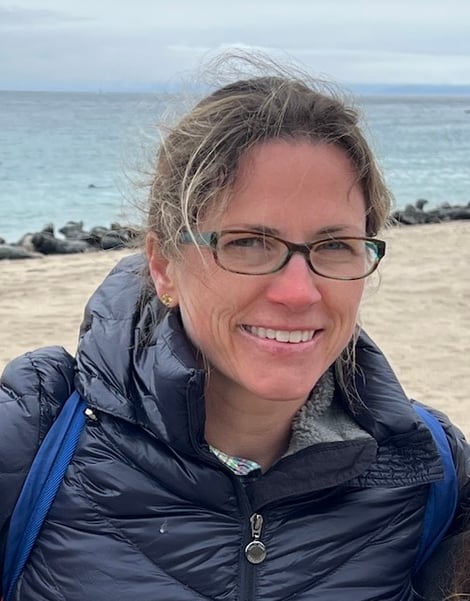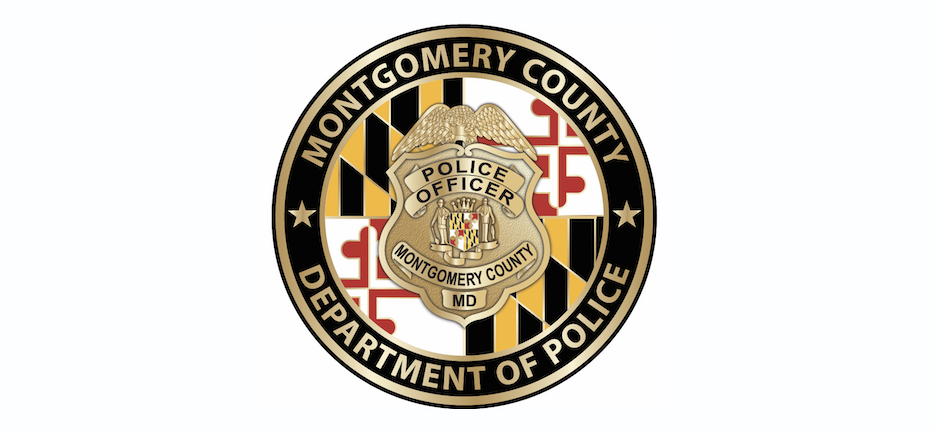I distinctly remember the day that I started with Montgomery County Department of Police. I was a young twentysomething hardly fit to deal with my own problems, let alone other people’s. Throughout the two decades that I have done this job, I have seen a lot of change. As of late, few could argue that change hasn’t been dominant in the policing world. From simple changes like revamping uniforms, to larger changes such as body cameras, those who long for consistency would surely be disappointed. And, here we are in 2023 and changes are still prevalent…some good, some bad, and a few that are neither good, nor bad… just different. For myself, and probably the vast majority of officers that I know, the latter is where legalization of cannabis falls. Just different, a new normal, but one we need to make certain to respect and to do right.
My name is Jayme Derbyshire. I am an officer with Montgomery County Police, and I have been with MCPD for a little over twenty years. Like all officers, I started my career in the training academy. We spent our days learning about various laws, how to best interact with people in crisis, and many other need-to know duties of a police officer. These tasks were learned in conjunction with completing hundreds of pushups and running more flights of stairs than I care to remember. It was certainly an experience, that when I was walking across the stage receiving my college diploma with a BA in English, that I never anticipated. This occupation has allowed me to see another side to human life. It has allowed me to appreciate many things in my life that I had taken for granted. Perhaps most importantly, it forced me to consider situations, conditions, and opinions of others that were different than mine and, it allowed me to help people. Most officers enter the job saying that they want to be a police officer for the sole purpose of “helping people.” For me, it wasn’t until I learned the job (and practiced it), that I realized how important this aspect of the job was to me. Perhaps I’m a much slower learner than I initially thought.
After the academy, I spent a number of months in field training, and then went on to a permanent shift. I learned a lot in my first ten years. I was far from the person that I was when I left college….and that was probably a good thing. After working many evening and midnight shifts, I discovered that I felt passionately about enforcing impaired driving laws. I felt like the impaired driving effort was something that officers did that was largely proactive, something that was immeasurable in importance. After all, preventing a fatal crash and saving even one life was not something that many people could claim. As officers, we are very reactionary. We respond to bad situations after the crime happens. Impaired driving enforcement is about stopping that unsafe driver before the fatal crash happens. I have always really appreciated that the efforts made by DUI arrests were (for some) life changing. Throughout my career, there have been a number of people whom I have arrested for impaired driving that have later thanked me for being the catalyst to help them change. It's not the thanks that matters, but the mentality that the offender can change that drew me in. The idea that a bad decision can lead to better decisions and in turn a better life, offers hope in a profession where hope is hidden in the deep recesses of poor judgement, oftentimes unlikely to resurface.
As a commitment to impaired driving enforcement, I later joined the Alcohol Initiative Unit full time. I worked alongside a dedicated group of six to seven people who enforced impaired driving laws daily. This was a fulfilling part of my career. I felt like I was contributing in a positive manner to the community by keeping people and roadways safe. This unit worked grueling hours, lots of weekends, and essentially all holidays, but the mission was compelling. It involved doing something that really mattered. At that point in my career, things seemed to be progressing along at a fairly normal rate until change graced me once again.
Jump forward to the end of 2017…the impaired driving world was about to shift. It was difficult to ignore the presence of cannabis dispensaries becoming more prevalent in various beats and districts. This “new normal,” consequently left many traffic safety experts wondering about the impact of medicinal legalization, and it wasn’t a far mental leap to rationalize that adult use legalization would not be far behind. At the time, Maryland was in fairly good shape. The State had over 100 Drug Recognition Experts (DRE) that were tasked with responding to the station once an impaired driver was arrested in which the subject’s level of impairment was not consistent with their Blood Alcohol Content (this was determined by an evidentiary breath test). If alcohol impairment, and an obvious medical issue were ruled out, it was the DRE’s responsibility to run the subject through a twelve-step process to determine the category of drug of which the driver was under the influence. Drugged impaired driving is no more difficult to enforce or detect than alcohol impaired driving, but it can take a few more steps to prove or disprove, and it takes a lot more training for the DRE. Maryland did see an increase in drugged driving in 2018 and 2019. Lacking a good baseline made this increase hard to pinpoint. During these years more people were found to be driving under the influence of cannabis, or a combination of cannabis and alcohol, than in years prior. But, for the most part, most of the medicinal patients proved to be consuming responsibly and not driving after ingestion (meaning we were arresting people for driving under the influence of drugs that were not certified medical cannabis patients and more likely recreational users).
The increase in drugged driving numbers were not just creeping up in Maryland, but other states as well. This trend was certainly a call to action for law enforcement, but it was clearly evident that this call to action should be handled differently. Cannabis laws had changed, and were likely to continue to do so. Law enforcement needed a novel approach as to how to best address what was going to be a training issue, as well as a public safety issue. With the potential for an increase in cannabis impaired driving, it was important to keep officers educated about the changing laws. Equally important was to make sure that the general public was well informed about the dangers of operating a motor vehicle after ingestion of cannabis, and that they were knowledgeable as to the consequences of driving impaired. This sounds simple, but it was a daunting task. The bigger question was how to do this efficiently and effectively. The best answer was that it needed to be a true group effort, but what did that look like? A potential solution, much to my management’s initial dismay, was a unique training venue that came to be dubbed Cannabis Labs (aka Green Labs).
I remember the day fairly well. My current lieutenant and I were scheduled to meet with the Chief to pitch the idea. As we sat down in his office, I recall preparing myself for a distinct “no,” some talk about liability, and a “maybe in a few years” send off. To my surprise it didn’t go that way. We began to explain the general concept behind the training. Simply put, we wanted to host medical cannabis patients at our academy, have them consume cannabis, and then teach officers what actual impairment looked like. The Chief, to his credit and after the initial shock that we were asking essentially to hang out with a bunch of people smoking cannabis all in the name of training, agreed. Everything happened pretty quickly after that. MCPD’s newest training initiative, Cannabis Labs, took off in 2018 and we have barely looked back (well, COVID-19 slowed us down a little, but not much).
Any law enforcement agency would tell you that the gold standard for DUI training are alcohol labs. These are instructional venues specific to DUI training wherein volunteers consume a controlled amount of alcoholic beverage in a controlled learning environment. Volunteers are kept to certain levels of intoxication and then students have these volunteers perform standardized field sobriety tests. This tactile learning venue is invaluable. Cannabis Labs follow this effective training concept; however, instead of volunteers ingesting alcoholic beverages, they are ingesting cannabis. To date, MCPD has trained hundreds of officers and prosecutors throughout the entire State of Maryland, as well as officers from other states to include; various agencies from Virginia, Massachusetts, Ohio, and North Carolina. We have had legislators, traffic safety experts, doctorate students, community members, a number of non-profits, federal organizations with interest in traffic safety, researchers, and toxicologists audit these classes. We have partnered with universities studying transportation and infrastructure to collect data on the effect of cannabis consumption on driving ability through the use of a portable simulator, as well as with an out-of-state research toxicology lab in an effort to conduct a timeline analysis of cannabinoids within oral fluid. These labs have created impactful partnerships that I could have never imagined.
Perhaps my favorite partnership, is the one that we have been fortunate enough to build with the cannabis community throughout this endeavor. I’m still trying to convince my current boss that yes, hanging out in local dispensaries is part of my job. I am sure he also probably wonders (more often than not) where my interest in cannabis begins and ends. Regardless, these relationships are invaluable, and the fact that the training is so successful rests primarily on the support from the community. Within the past couple of years, I can honestly say that I have had more in-depth conversations with cannabis patients, or those within the business, than I have had with people who share my similar interests. After two decades doing police work, one often sees more bad than good. This established relationship between law enforcement and the community in an effort to support a common goal, gives me hope. I have had the opportunity to work with some amazing dispensaries to include: Herbology, Kannavis, Sweet Buds, Rise (Bethesda and Silver Spring), and gLeaf. Many of my patient volunteers have been employees of these dispensaries, some are not employed by the dispensaries, but are dedicated patients that are eager to learn and help out, some are friends of friends, and others (many of my favorites in fact) are those that I’ve met in cannabis groups on Facebook. The positive relationships continue to amaze me and abound. Having just recently been introduced to CULTA President and Co-founder, Mackie Barch, is just another example of extreme potential. Upon meeting Mackie, I was immediately impressed with his dedication to promoting responsible cannabis consumption, as well as his willingness to work together to promote roadway safety. The tour of CULTA that his group hosted for the highway safety community helped to further understanding and increase knowledge amongst key decision makers. The relationship established is just one more example of positive long-term connections and the importance of good communication.
Over the past few years, I have been fortunate enough to have been recognized for my efforts with regard to my cannabis lab trainings. In 2021, Governor Hogan awarded me with the Kevin Quinlan Award, I received the Maryland Drug Recognition Expert of the Year Award, the Maryland Highway Safety Office awarded me with the Outstanding Innovative Program Award, and I received the Chief’s Award. In 2022, MCPD’s cannabis lab training program received national recognition with a National County Award. I have been extremely fortunate to have been requested to speak at various conferences throughout the country. Despite all of the accolades, these trainings programs cannot and would not be possible without the dedicated instructors, the interested students, and those within the cannabis community that volunteer their time and efforts to create a fantastic learning environment. These trainings are a collaborative effort and would not be possible without all of these groups stepping up.
Before writing this blog, I hadn’t really taken the time to evaluate the cannabis lab program on a deeper level. The successes are far from my own and are owned by the community as a whole. The labs allow for us all to work to do better. It allows law enforcement to educate themselves. It allows the cannabis consumers to learn more about potential impaired driving issues that ingesting cannabis can cause. We all learn from one another in these venues…every single person is essential. It allows all of us to take responsibility for keeping our roadways safe. As one of my former Captains was fond of preaching, “highway safety is public safety.” With recreational cannabis coming to Maryland this responsibility weighs heavier on all of us than ever before. If you’re reading this and want to be the change that keeps others safe and informed, please reach out to me directly at Jayme.Derbyshire@montgomerycountymd.gov. As someone much smarter than me said, “the secret of change is to focus all of your energy not on fighting the old, but on building the new.” -Socrates.
Additional sites of interest:
- National Drunk Driving Statistics Map - Responsibility.org - Responsibility.org
- If You Feel Different, You Drive Different | NHTSA
- National Alliance to Stop Impaired Driving (NASID) - National Alliance to Stop Impaired Driving
- Starts With Me - Responsibility.org

Jayme Derbyshire



